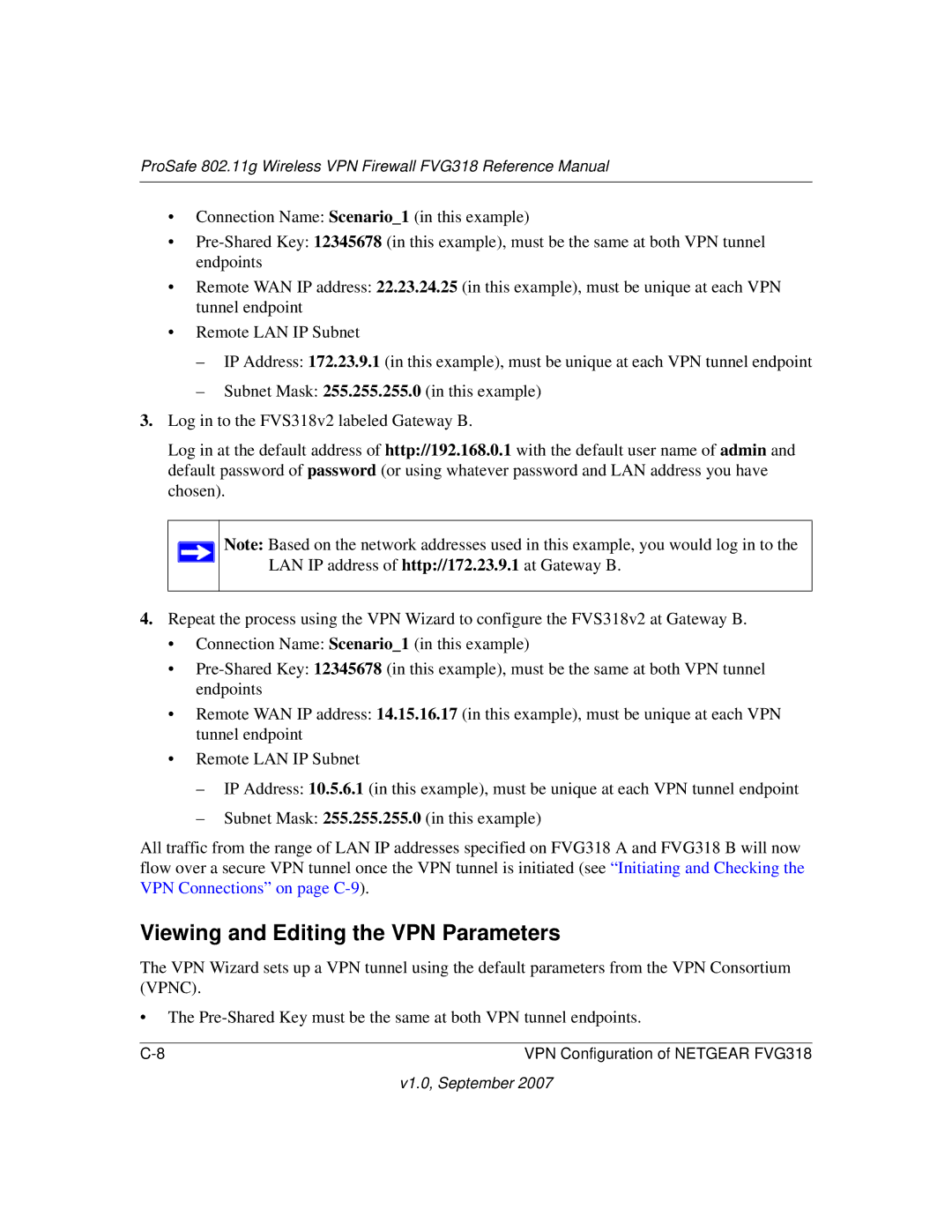
ProSafe 802.11g Wireless VPN Firewall FVG318 Reference Manual
•Connection Name: Scenario_1 (in this example)
•
•Remote WAN IP address: 22.23.24.25 (in this example), must be unique at each VPN tunnel endpoint
•Remote LAN IP Subnet
–IP Address: 172.23.9.1 (in this example), must be unique at each VPN tunnel endpoint
–Subnet Mask: 255.255.255.0 (in this example)
3.Log in to the FVS318v2 labeled Gateway B.
Log in at the default address of http://192.168.0.1 with the default user name of admin and default password of password (or using whatever password and LAN address you have chosen).
Note: Based on the network addresses used in this example, you would log in to the LAN IP address of http://172.23.9.1 at Gateway B.
4.Repeat the process using the VPN Wizard to configure the FVS318v2 at Gateway B.
•Connection Name: Scenario_1 (in this example)
•
•Remote WAN IP address: 14.15.16.17 (in this example), must be unique at each VPN tunnel endpoint
•Remote LAN IP Subnet
–IP Address: 10.5.6.1 (in this example), must be unique at each VPN tunnel endpoint
–Subnet Mask: 255.255.255.0 (in this example)
All traffic from the range of LAN IP addresses specified on FVG318 A and FVG318 B will now flow over a secure VPN tunnel once the VPN tunnel is initiated (see “Initiating and Checking the VPN Connections” on page
Viewing and Editing the VPN Parameters
The VPN Wizard sets up a VPN tunnel using the default parameters from the VPN Consortium (VPNC).
•The
VPN Configuration of NETGEAR FVG318 |
